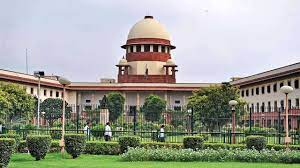
- Supreme Court of India
Mrs Dorairajan file a writ to Hon'ble HC, Madras under article 226 of Contitution of India for fundamental rights u/a 15(1) and u/a 29(2) of the constitution and pleaded to issue madamus. She Prayed she came to know that she would not be able to take admission in the Madras Medical College as she belonged to the Brahmin community. No, objection was taken to the maintainibility of her petition on the grounds of absence of any actual application of admission made by her. On the contrary, state had agreed to reserve the seat for her, should her application before the HC succeed. In the peculiar circumstances, the court did not consider it necessary to pursue this matter any further. Held- The G.O of the govt was considered to be inconsistent and the provision of article 29(2) in part III of the constitution is void under article 13.
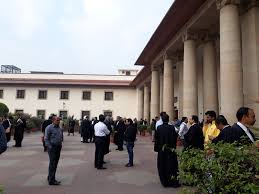
- Supreme Court of India
Held - "Trans-gender persons" to be persons of "third gender" - (1) Hijras, Eunuchs, apart from binary gender, be treated as “third gender” for the purpose of safeguarding their rights under Part III of our Constitution and the laws made by the Parliament and the State Legislature. (2) Transgender persons’ right to decide their self-identified gender is also upheld and the Centre and State Governments are directed to grant legal recognition of their gender identity such as male, female or as third gender. We direct the Centre and the State Governments to take steps to treat them as socially and educationally 110 backward classes of citizens and extend all kinds of reservation in cases of admission in educational institutions and for public appointments. (4) Centre and State Governments are directed to operate separate HIV Sero-survellance Centres since Hijras/ Transgenders face several sexual health issues. (5) Centre and State Governments should seriously address the problems being faced by Hijras/Transgenders such as fear, shame, gender dysphoria, social pressure, depression, suicidal tendencies, social stigma, etc. and any insistence for SRS for declaring one’s gender is immoral and illegal. (6) Centre and State Governments should take proper measures to provide medical care to TGs in the hospitals and also provide them separate public toilets and other facilities. (7) Centre and State Governments should also take steps for framing various social welfare schemes for their betterment. (8) Centre and State Governments should take steps to create public awareness so that TGs will feel that they are also part and parcel of the social life and be not treated as untouchables. (9) Centre and the State Governments should also take measures to regain their respect and place in the society which once they enjoyed in our cultural and social life.
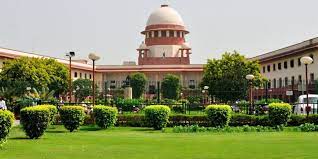
- SUPREME COURT OF INDIA
- Live-in or marriage like relationship is neither a crime nor a sin though socially unacceptable in this country. The decision to marry or not to marry or to have a heterosexual relationship is intensely personal.
- We are, in this case, concerned with the question whether a “live-in relationship” would amount to a “relationship in the nature of marriage” falling within the definition of “domestic relationship” under Section 2(f) of the Protection of Women from Domestic Violence Act, 2005 (for short “the DV Act”) and the disruption of such a relationship by failure to maintain a women involved in such a relationship amounts to “domestic violence” within the meaning of Section 3 of the DV Act.
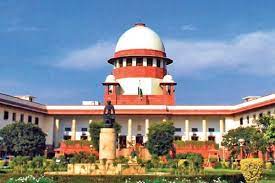
- SUPREME COURT OF INDIA
All live-in- relationships are not relationships in the nature of marriage. Live-in partners not entitled to protection if one of the partner has a subsisting marriage
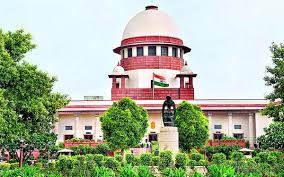
- Supreme Court of India
In this important case Hon'ble decided three important issue -
-
Where acts of omission and commission, deliberate or otherwise, are committed by the investigating agency or other significant witnesses instrumental in proving the offence, what approach, in appreciation of evidence, should be adopted?
-
Depending upon the answer to the above, what directions should be issued by the courts of competent jurisdiction?
-
Whenever there is some conflict in the eye-witness version of events and the medical evidence, what effect will it have on the case of the prosecution and what would be the manner in which the Court should appreciate such evidence?
HELD- WHERE THERE IS AN INCONSISTENCY WITH MEDICAL EVIDENCE (POST MORTEM) AND EYE WITNESS, THE RELIABLE TESTIMONY OF EYE WITNESS SHALL PREVIAL - REFER PARA 11 AND 12 OF JUDGMENT
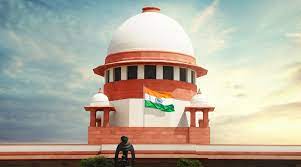
- Supreme Court of India
Honour Killing comes within the purview of rarest of the case, so deserve death penalty.
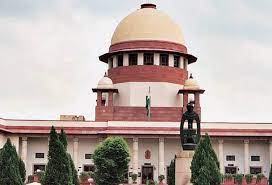
- SUPREME COURT OF INDIA
WHAT ARE MINORITY INSTITUTION- REQUIREMENT TO ESTABLISH MINORITY INSTITUTIONS- All citizens have a right to establish and administer educational institutions under Articles 19(1)(g) and 26, but this right is subject to the provisions of Articles 19(6) and 26(a). However, minority institutions will have a right to admit students belonging to the minority group.
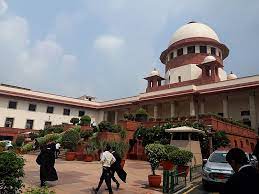
- Bombay High Court
Bombay High Court held - Banks cannot prosecute borrowers under section 138, Negotiable Instrument Act, if blank post-dated cheques issued by them as collateral security are dishonoured. The court upheld the acquittal of Ahmednagar resident Rajendra Warma, who was prosecuted after a blank cheque issued by him for a loan was dishonoured.
''It is doubtful if the provisions of Section 138 of the Negotiable Instruments Act can apply to a case in which a blank or post-dated cheque is obtained by a bank or money lender before or while sanctioning or disbursing loan amounts as security for the loan,'' said Justice P R Borkar. The order is likely to come as a huge setback to lending agencies who ask borrowers to deposit blank post-dated cheques as security. ''Law-makers must not have intended or imagined that money lenders or banks would obtain blank or post-dated cheques while sanctioning/disbursing loans as securities and would use them to make debtors/borrowers repay the loan under threat of prosecution and punishment (under the cheque-bouncing law),'' added the judge".
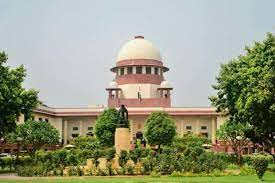
- Supreme Court of India
A bare reading of Section 375 makes the position clear that rape can be committed only by a man. The section itself provides as to when a man can be said to have committed rape. Section 376(2) makes certain categories of serious cases of rape as enumerated therein attract more severe punishment. One of them relates to "gang rape". The language of sub-section(2)(g) provides that "whoever commits 'gang rape" shall be punished etc. The Explanation only clarifies that when a woman is raped by one or more in a group of persons acting in furtherance of their common intention each such person shall be deemed to have committed gang rape within this sub-section (2). That cannot make a woman guilty of committing rape. This is conceptually inconceivable. A woman cannot be said to have an intention to commit rape.

- Supreme Court of India
Irretrievable breakdown of marriage is a ground for the grant of divorce- Supreme Court of India in its landmark judgment held that -Before we part with this case, on the consideration of the totality of facts, this Court would like to recommend the Union of India to seriously consider bringing an amendment in the Hindu Marriage Act, 1955 to incorporate irretrievable breakdown of marriage as a ground for the grant of divorce. A copy of this judgment be sent to the Secretary, Ministry of Law & Justice, Department of Legal Affairs, Government of India for taking appropriate steps.
